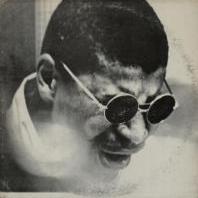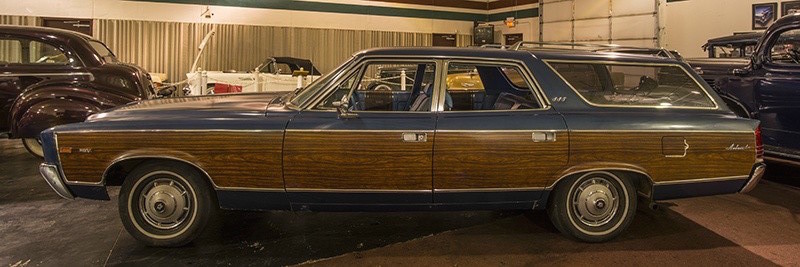-
Posts
5,203 -
Joined
-
Last visited
Content Type
Profiles
Forums
Events
Blogs
Everything posted by Late
-

J.S. Bach: Suites 1-6 for Unaccompanied Cello
Late replied to paul secor's topic in Classical Discussion
And for fans of the Casals recording (I'm one), this edition is the one you want. Brilliantly remastered from 78's. -
And check out Rochat's Cassado: https://www.youtube.com/watch?v=-WAc1EDl3a0 Never mind all the edits and lighting (and hair). Listen. Cassado himself would grin.
-

J.S. Bach: Suites 1-6 for Unaccompanied Cello
Late replied to paul secor's topic in Classical Discussion
Fans of Ophélie Gaillard's edition of the Suites should check out Pieter Wispelwey's third recording (2012) of the complete Suites. I have to say, I think it's very, very good; so far, I like it better than Gaillard's. Idiosyncratic at times, yes, but musical above all. Sound samples at Amazon. If Gaillard is "virile," this edition of the Wispelwey is carnal. Something like that. -
Full album on now. Good to hear more Wetmore. I also dig Vinnie Burke. The stuff he did with Eddie Costa — very tasty.
-
-
https://www.youtube.com/watch?v=JxEWa922jgc
-
Fans here? The Sarah influence is strong, but her artistry is solid enough that she doesn't come off strictly as an imitator. https://www.youtube.com/watch?v=vwfu4lZjD3k
-
Very much agree. I love that record, particularly the bonus track "Tibbit." And the opening track, "W.K. Blues" (penned by Mr. W.K. himself), was my get-up-in-the-morning track for over a year. That said, what else I've heard from Strozier, which isn't everything, has never quite lived up to the same level of excitement (for me). His participation on McCoy Tyner's Today and Tomorrow, as one example, seems oddly inhibited. On that debut record, however, Strozier is in full voice and very much uninhibited. Doesn't hurt that Booker Little's on the record too. I wish Alfred Lion had found a way (or a desire) to get Strozier onto his label. I passed on the Mosaic because I already had all the music. Maybe that wasn't the best idea. (All this belongs on a Vee-Jay thread. Then we could also talk about The Beatles' first U.S. album!)
-
Sometimes it sounds (to me) like Rollins is improvising harmonies, or harmonic counterpoint, to a melody that nobody else can hear. In other words, he's playing "under" an improvised melody that he's hearing but not necessarily playing. Does that make any sense?
-
-
And now ... I can't tell if this is a terrible record or a hidden gem. But I am spinning it.
-
The schmaltz level is so high that it's somehow, blackhole-wise, a good record.
-
-
Been spinning this one (and Black Saint) all morning. The track "Priestess," for some reason, feels like a memorial track today.
-
Important point — and the same can be said, probably not coincidentally, of a number of creative icons. Equally important to the music he made, is his power of perseverance — to keep going in the face of that one repeated word: No.
-
I love the track order. It's one of the few best-of comps, for nostalgic reasons I suppose, that I consider an album to itself.
-
Interesting that this Vee-Jay title is in the batch. My Japanese P-Vine copy sounds like cr@p. Will probably take a gamble on this new edition.
-
I heard my first Ornette record when I was sixteen years old. I checked out (vinyl!) The Best of Ornette Coleman, on Atlantic, from my local library. I was entranced — some of the most natural sounds I'd heard from a saxophone. Later, I found out, his music was "controversial." His legacy will only expand.
-
300 Low-Price Jazz Masterpieces The above link was posted in the Blue Note SHM-CD thread, but I thought this new Japanese reissue campaign, coming out in September 2015, deserves its own thread. A multi-label reissue series, it initially seems something of a mess. Great titles for sure, but likely no new remasters. Still ... what remasters will be used? SHM-CD remasters? Rudy Van Gelder remasters? Are there titles that you'll actually buy? The price is right, no question. Some titles are more obscure than others, so there's a little — seemingly — for everyone. I'll probably (finally) pick up Blue Mitchell's Blue's Moods. I've lived with the music for some time, but not physical product.
-
I haven't heard it. Always passed it by for some reason.
-
Oh yes — "spiritual." And take out "really" and "unique" ... and there are zero qualifiers.
-
Dusty Groove adds the illuminating comment: "... Irene Aebi sings her usual wordless kind of things ... " Dusty Groove's item descriptions have always bugged the &%$*@ out of me. I still shop there, but I can't read their vapid copy. I swear, if you deleted the words "little" (every other item is called "a great little record"), "angular" (somehow meant to portray anything except possibly Lester Young), and "genius" — well, their whole catalog of copy would have holes in it.
-
Sound is much improved over the GRP edition. Hey, wasn't the awakening also part of the same 2011 SHM series as the Coltranes, and they still used an older mastering for this? That's unexpected. As a result, it's no longer in my shopping cart. Thank you. UCCI 9227(SHM CD) Jamal,Ahmad(p)/The Awakening I know — it's the first time, in my experience, that this series didn't fall back, when it easily could have, on the SHM-CD remaster. I took one for the team! So, a heads-up for the board — I wouldn't recommend UCCI 9282. Try to find the 2011 edition.
-
UCCI 9282 = UCCU 3057 (2006 edition) Compressed. Loud. Hey, that's my philosophy too! And here's a handy visual aid for this series!
-
If you know the session already, and like it, you will not be disappointed with this new edition. At 1000¥, and with a superior (SHM-CD) remaster, it's a bargain. So far, I've been cherry-picking titles from this latest reissue batch that were previously SHM-CDs, and each title has — as I've posted above — used the SHM-CD remaster. Great way to get the music in excellent sound. Even better when you have CD Japan points stacked up.
_forumlogo.png.a607ef20a6e0c299ab2aa6443aa1f32e.png)
